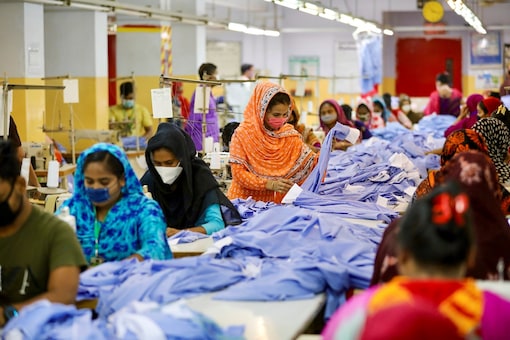Women are often the backbone of society during times of crisis, despite the fact that women are more likely to be disproportionately affected by such occurrences. The epidemic of Covid-19 is no exception.
It has exacerbated existing gendered hurdles, increased India’s workforce gender gap, and impacted (overwhelmingly female) caregivers and frontline employees.
Furthermore, Dalberg performed one of the largest studies on the socio-economic effects of Covid-19 on women in low-income homes, revealing that poor nutrition, lack of access to contraception, and debt had a multi-generational impact.
Impact on Women :-

- More Women unemployed: Women were more affected by job-related concerns than men. Women made up just 24% of those employed before the pandemic, but they accounted for 28% of those who lost their jobs.
- Food insecurity issues: loss of income for women and their households resulted in a reduction in food supply, with women being impacted more than other family members.
- Reproductive Health Issues: Women’s health indicators deteriorated as a result of their inability to buy contraception and menstrual products.
- About 16 percent of women (an estimated 17 million if extrapolated) had to cease using menstruation pads, and more than one in three married women were unable to acquire contraception.
- Unpaid Work: Indian women currently undertake nearly three times as much unpaid work as Indian males, according to the poll, with unpaid labour increasing by 47 percent and unpaid care work increasing by 41 percent.
- Marginalised Groups: Women from historically marginalised groups (Muslims, migrants, single/separated/divorced women) were more affected than typical women.
- There is a wide range of differences, with more single, separated/divorced women having restricted access to food or running out of it, and many more Muslim women losing their money and livelihood.
- Conditions on the ground are likely to deteriorate for women who suffer the brunt of societal discrimination (such as dalit women and transgender people).
Way Forward :-

- Expanding the public distribution system (PDS) beyond food: The PDS is a far-reaching delivery route, hence it should be expanded beyond food. For example, in the short term, women’s access to menstruation pads might be revolutionised in this way, greatly increasing reach.
- Combining PDS with free menstrual hygiene products would reduce women’s reliance on money for these necessities.
- Ideally, this would work hand-in-hand with menstrual health and hygiene awareness campaigns at the national, state, and district levels.
- Benefits of Schemes Must Be Universalised: Women must be enrolled on MGNREGA employment cards to enhance the total number of person-days available to fulfil women’s desire for job opportunities.
- Leverage the current Deendayal Antyodaya Yojana – National Rural Livelihoods Mission to strengthen SHG resilience by concentrating on their economic recovery and market connections.
- SHGs might also provide technical and management training to assist women learn the skills they’ll need to operate digitally-focused small enterprises.
- Inclusive Approach: Focus on include single, divorced/separated women in the One Nation One Ration Card rollout, as well as developing social support programmes for informal workers, such as domestic workers and casual labourers.
- Increasing Awareness: The government may expand on and accelerate its existing efforts to increase contraceptive use through Accredited Social Health Activists (ASHA) workers, Mission Parivar Vikas, and other programmes.
Conclusion :-
According to the poll, one out of every three women claimed that government assistance programmes and SHGs were helpful in navigating the epidemic.
During the crisis, the Mahatma Gandhi National Rural Employment Guarantee Scheme (MGNREGS), the Pradhan Mantri Jan Dhan Yojana, and the public distribution system (PDS) successively aided 12 million, 100 million, and 180 million women. As a result, there is a need to universalize, deepen, and extend government schemes and SHG setups in order to help every woman recover as quickly as possible from the pandemic’s ill effects. Making the right investments in women’s issues now could prove transformative in our economy’s and society’s long-term recovery and health.
